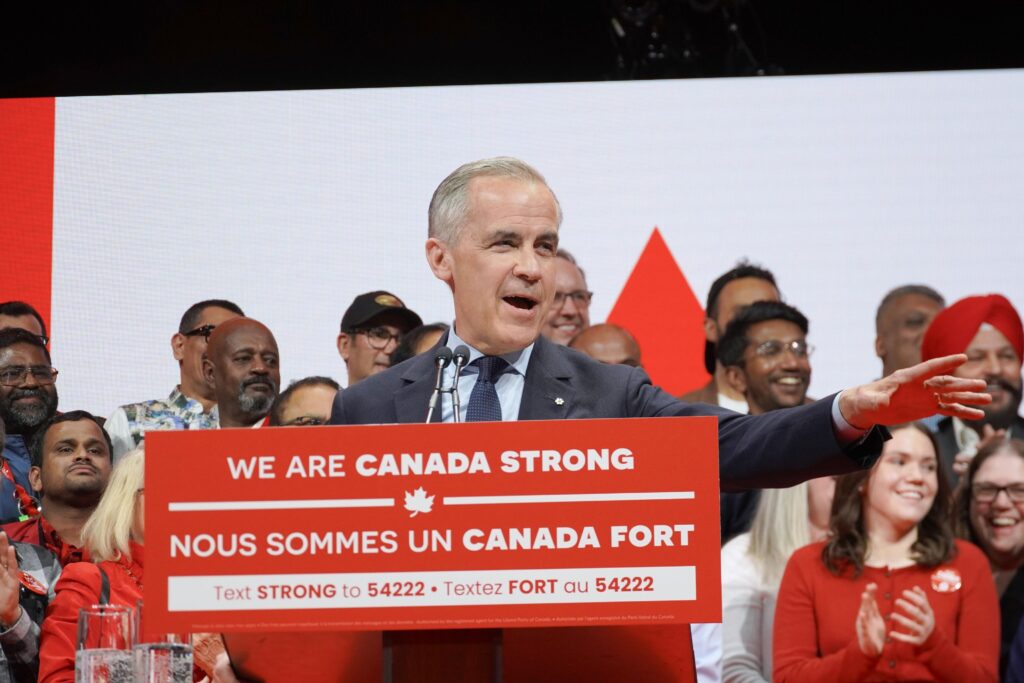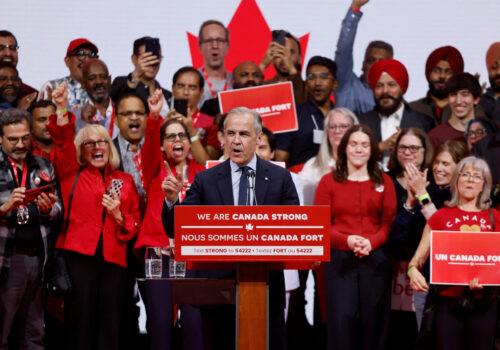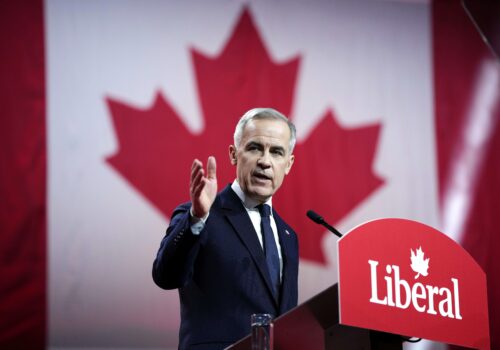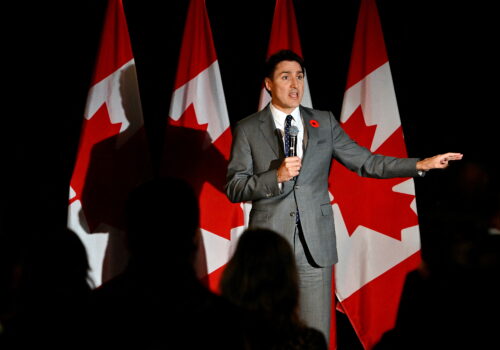GET UP TO SPEED
It was a state-ment. Canadian voters returned the Liberal Party to power on Monday after a stunning political comeback fueled by tensions with the United States—including an election-day message from US President Donald Trump calling for Canada to become the “fifty-first state.” Prime Minister Mark Carney declared in his victory speech that the United States will never “own” Canada. “But we also must recognize the reality that our world has fundamentally changed.” Our Canada-watchers are here to diagram what this new world looks like as Carney prepares to form a government.
TODAY’S EXPERT REACTION BROUGHT TO YOU BY
- Christopher Sands (@USCanada_Sands): Adjunct lecturer and the director of the Hopkins Center for Canadian Studies at the Johns Hopkins School of Advanced International Studies
- Imran Bayoumi (@BayoumiImran): Associate director at the Atlantic Council’s Scowcroft Center for Strategy and Security
- Maite Gonzalez Latorre: Program assistant at the Atlantic Council’s Adrienne Arsht Latin America Center
Flag waving
- The election was essentially a referendum on the Canada-US relationship, Chris tells us, as “a surge of nationalist sentiment swept the country, including in Quebec,” which historically has maintained its own identity.
- Carney, who took over from Justin Trudeau in March, and the Liberal Party appear to have fallen short of a hoped-for majority of 172 seats. Meanwhile, the Conservative Party stumbled—with its leader Pierre Poilievre losing his own seat. “Carney outperformed expectations, but the appetite for change remains strong. Canadians are still divided on who should lead,” Chris says.
- The Trump administration, Chris says, could view a minority government as “weak.” Therefore it could ratchet up “pressure on Canada to meet NATO’s 2 percent of gross domestic product defense spending target, strengthen border security, and unlock its critical minerals—goals first promised by Trudeau in 2019 with little progress.”
Sign up to receive rapid insight in your inbox from Atlantic Council experts on global events as they unfold.
Let’s make a deal
- Given Ottawa’s ongoing tensions with Washington, Imran says we should expect Carney “to look beyond the traditional defense partnership with the United States and to forge new, smaller defense deals with a variety of nations.”
- We got a few hints during Carney’s first overseas trip, when he went to Paris and London rather than Washington and said Canada was reconsidering its decision to purchase F-35 fighter jets from the United States. Imran also points to a radar deal with Australia, a potential submarine deal with South Korea, and a proposed closer partnership with Nordic countries.
- Carney’s Ottawa will distance itself from Washington on defense, “except where needed,” Imran predicts, “such as on North American Aerospace Defense Command (NORAD) modernization.”
Rocky Mountain low
- Though Carney called for unity in his victory speech, that will be put to the test in the Conservative stronghold of Alberta, Maite notes, where the Liberals won just two ridings. “With blue-collar Albertans significantly impacted by US tariffs, Carney now faces a critical opportunity to demonstrate his commitment to all Canadians, not just Liberal supporters or Ontario residents.”
- Carney and Trump-aligned Alberta Premier Danielle Smith, Maite points out, “have not started their relationship on solid footing.” But the Edmonton native Carney “may leverage his Alberta connections to build bridges with Smith and provincial voters.”
- Alberta will also be the site of global intrigue in June, when Canada hosts Trump and other world leaders for the Group of Seven (G7) Summit in Kananaskis. That trip to the Canadian Rockies, followed by a flight to the Netherlands for the NATO Summit, represent “two defining tests” for Carney, Chris says: “How he performs will shape Canada’s standing abroad—and at home.”
Further reading
Tue, Apr 29, 2025
Experts react: What the Liberal Party’s win in Canada means for the world
New Atlanticist By
Canadian Prime Minister Mark Carney’s party secured the most seats in Canada’s parliament in elections on April 28, marking a remarkable political turnaround.
Mon, Mar 10, 2025
Experts react: What Mark Carney means for the US-Canada relationship
New Atlanticist By
As the next prime minister of Canada prepares to take office, Atlantic Council experts look at what’s ahead for Ottawa and its relationship with Washington.
Mon, Jan 6, 2025
Justin Trudeau is out. Here’s how the next Canadian prime minister can bolster US-Canada ties.
New Atlanticist By Imran Bayoumi
Whoever follows Trudeau as prime minister should focus on three specific areas that will be central to US-Canada relations in the year ahead.
Image: Canadian Prime Minister Mark Carney speaks in the small hours of April 29, 2025, in Ottawa after his Liberal Party won the general election the previous day. Kyodo via Reuters Connect.




